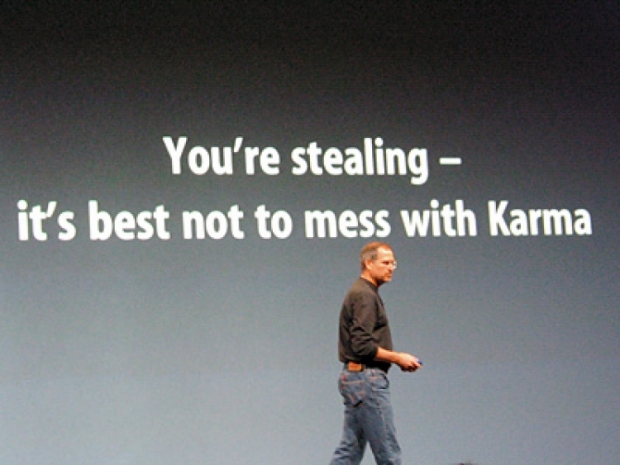Apple wanted a sizable chunk of Samsung’s smartphone profits because it claimed that Samsung had stolen its revolutionary super-cool rounded rectangle design. It claimed that because Samsung had nicked one thing then its products' entire success was due to Apple and it should pay up.
To be fair to Apple it got a US appeals court to agree with it. The appeals court ruled that the South Korean company had to pay a $399 million penalty to its American rival for copying key iPhone designs.
However, the Supremes thought this argument was pants and unanimously threw it out. Justice Sonia Sotomayor, held that a patent violator does not always have to fork over its entire profits from the sales of products using stolen designs, if the designs covered only certain components and not the whole thing.
The justices sent the case back to the US Court of Appeals for the Federal Circuit in Washington to determine how much Samsung must pay.
Samsung said that the ruling was a "victory for Samsung and for all those who promote creativity, innovation and fair competition in the marketplace". Apple sulked that Samsung had been caught out stealing and it smelt of a Nintendo console. It is still hoping that an appeals court will make Samsung pay.
The whole fiasco started when Steve Jobs believed that he invented the rounded rectangle and threatened to go thermos-nuclear with Samsung. In 2012 a jury verdict favoured the tax-dodging cargo cult and hit Samsung initially with nearly $930 million in penalties. This was later cut by $382 million.
In December 2015, Samsungpaid its Cupertino, California-based rival $548 million the court wanted but Samsung took the matter to the Supreme Court, saying it should not have had to make $399 million of that payout. That seemed to be just for the use of the design, and the phone was made out of other bits which Apple had nothing to do with.
Apple said Samsung presented no evidence that the article of manufacture in this case was anything less than its entire smartphone as sold. Samsung said that it did not have to and should not have had to turn over all its profits because the phone was shaped like a rounded rectangle. Even if the rounded rectangle had contributed to its smartphone success it was a complex product with thousands of patented features.
The Supreme Court agreed completely and said that the term "article of manufacture was broad enough to encompass both a product sold to a consumer as well as a component of that product.




